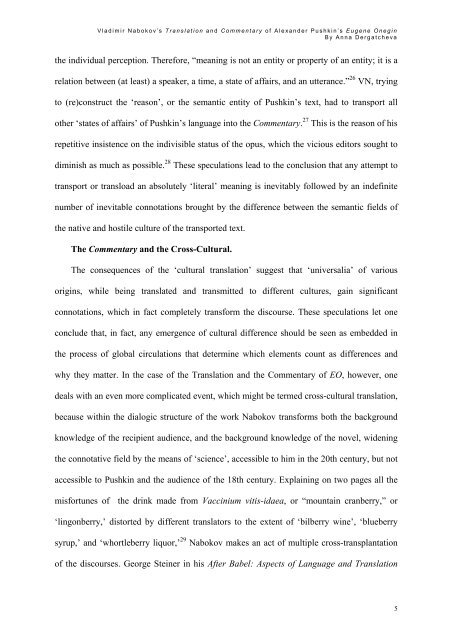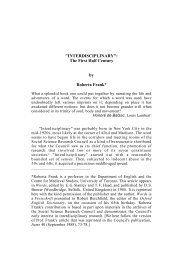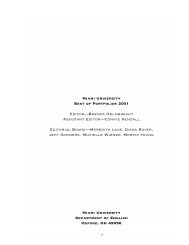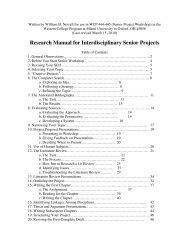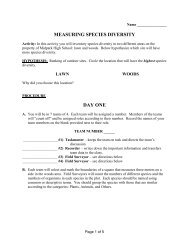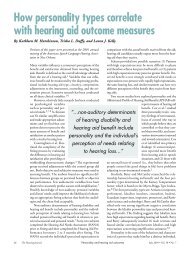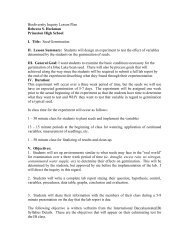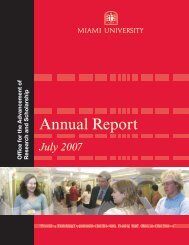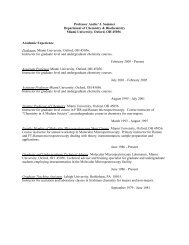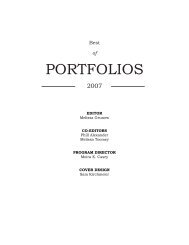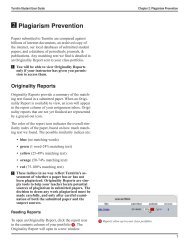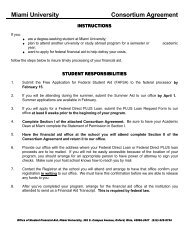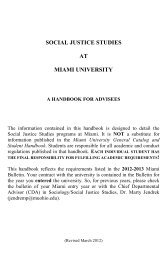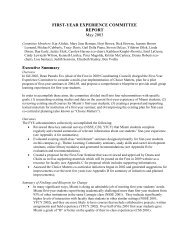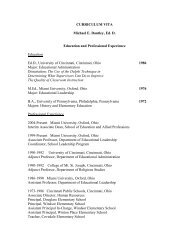Nabokov as Translator - units.muohio.edu
Nabokov as Translator - units.muohio.edu
Nabokov as Translator - units.muohio.edu
Create successful ePaper yourself
Turn your PDF publications into a flip-book with our unique Google optimized e-Paper software.
Vladimir <strong>Nabokov</strong>’s Translation and Commentary of Alexander Pushkin’s Eugene Onegin<br />
By Anna Dergatcheva<br />
the individual perception. Therefore, “meaning is not an entity or property of an entity; it is a<br />
relation between (at le<strong>as</strong>t) a speaker, a time, a state of affairs, and an utterance.” 26 VN, trying<br />
to (re)construct the ‘re<strong>as</strong>on’, or the semantic entity of Pushkin’s text, had to transport all<br />
other ‘states of affairs’ of Pushkin’s language into the Commentary. 27 This is the re<strong>as</strong>on of his<br />
repetitive insistence on the indivisible status of the opus, which the vicious editors sought to<br />
diminish <strong>as</strong> much <strong>as</strong> possible. 28 These speculations lead to the conclusion that any attempt to<br />
transport or transload an absolutely ‘literal’ meaning is inevitably followed by an indefinite<br />
number of inevitable connotations brought by the difference between the semantic fields of<br />
the native and hostile culture of the transported text.<br />
The Commentary and the Cross-Cultural.<br />
The consequences of the ‘cultural translation’ suggest that ‘universalia’ of various<br />
origins, while being translated and transmitted to different cultures, gain significant<br />
connotations, which in fact completely transform the discourse. These speculations let one<br />
conclude that, in fact, any emergence of cultural difference should be seen <strong>as</strong> embedded in<br />
the process of global circulations that determine which elements count <strong>as</strong> differences and<br />
why they matter. In the c<strong>as</strong>e of the Translation and the Commentary of EO, however, one<br />
deals with an even more complicated event, which might be termed cross-cultural translation,<br />
because within the dialogic structure of the work <strong>Nabokov</strong> transforms both the background<br />
knowledge of the recipient audience, and the background knowledge of the novel, widening<br />
the connotative field by the means of ‘science’, accessible to him in the 20th century, but not<br />
accessible to Pushkin and the audience of the 18th century. Explaining on two pages all the<br />
misfortunes of the drink made from Vaccinium vitis-idaea, or “mountain cranberry,” or<br />
‘lingonberry,’ distorted by different translators to the extent of ‘bilberry wine’, ‘blueberry<br />
syrup,’ and ‘whortleberry liquor,’ 29 <strong>Nabokov</strong> makes an act of multiple cross-transplantation<br />
of the discourses. George Steiner in his After Babel: Aspects of Language and Translation<br />
5


